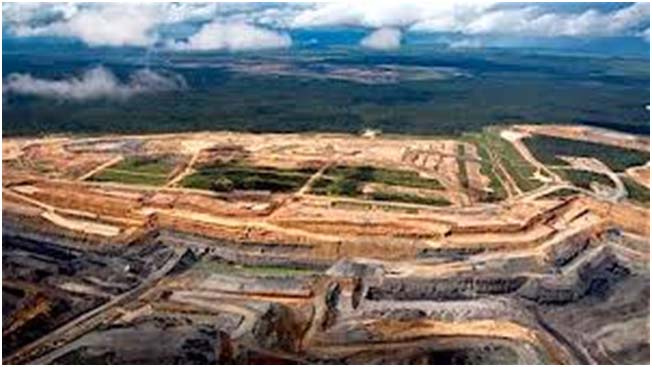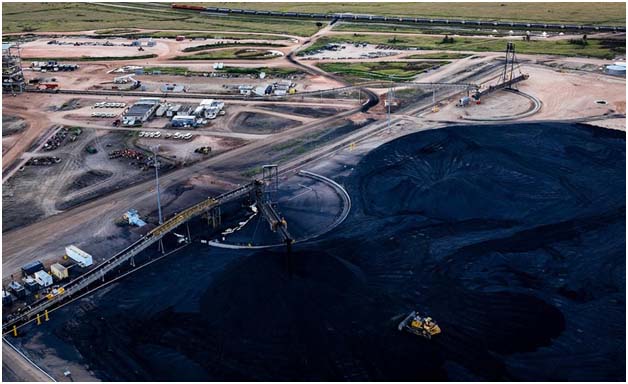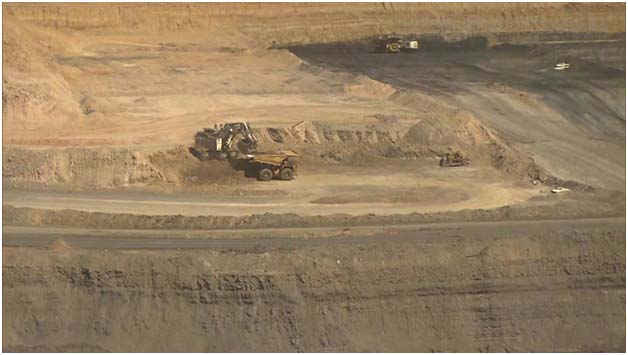Coal Sector Momentum

Photo by Banktrack.org.
The Queensland Government backs an expansion of Bravus’ Carmichael coal mine, realizing new production and a $50 million regional infrastructure pledge. The transaction also preserves 600 construction jobs and continuing work for subcontractors in Townsville, Rockhampton, and the wider Galilee Basin.
But while government politicians are celebrating the agreement as a jobs and regional development victory, critics say that the conditions of the agreement are too loose, concealing from taxpayers just how costly it will be.
Why the Deal Matters
Coal has been the economic anchor of Queensland for generations. Coal royalties totalling $18 billion funded state budgets last year alone, paying for schools, hospitals, and improved roads. But the industry is coming under growing pressure with diminishing climate goals and investment bleeding over to renewables.
Against this background, Carmichael’s construction is both an economic lifeline to towns as well as a political hot potato.
Economic Dividend: Townsville businesses like Wulguru Group, which spent $35 million on a new plant last year, will gain directly from contracts.
Regional Development: Building work will put money into regional economies that have developed more sluggishly.
Public Interest: Paid-out royalties—though accruing interest—are locked away secure. Unless the terms of the repayment timetable and interest rate are made open, according to critics, the public can’t ensure whether or not the bargain is fair value.

Credit: Bravus Mining
What’s New This Time
This is not the first time Carmichael negotiated good terms. A delayed royalty plan was agreed to in 2020 under the last government. The new twist in the deal is the $50 million advance payment and binding obligation to repay the royalties with interest.
But the lack of publicly available information on repayment remains. Opposition MPs and green activists are demanding openness, claiming that otherwise trust in government policy will remain eroded.
The Case in Figures
Increased production: From 10 million tonnes to about 16 million tonnes annually.
Employment creation: 600 jobs directly in construction, plus several hundred indirect jobs in transport, logistics, and supply.
Investment flow-on: Up to $500 million in secondary contracts across regional Queensland.
Environmental risk: Expanded operations would compound impacts on threatened species habitats, including the black-throated finch.
Supporters vs Critics
Supporters suggest:
- The deal brings certainty to investors, making Queensland competitive on the world coal market.
- Local economies will have a direct benefit through construction and supply contracts.
- Delayed royalties will ultimately end up in the state, supporting long-term budgets.
Critics counter:
- Deceptive accounting blinds key financial figures to reality, leaving doubts around truthful costs.
- Increased coal production conflicts with climate obligations and threatens reputational harm.
- Communities may be left with long-term environmental expenses, especially in delicate ecosystems.
Also Read: LiuGong Powers Australia’s Electric Mining Revolution
The Bigger Picture

Source: ABC News
For Queensland, it’s not merely expansion of a mine—it’s an inquiry into whether governments can weigh economic need against environmental obligation.
Global Transition: As nations are competing to reach net-zero goals, high-value coal projects may be stranded assets.
Political Ramifications: The deal has been grabbed by opposition parties to label the government as job-creators or green laggards.
Pressure Down the Line: In case international demand for thermal coal falls, the value of expansion today can dissipate fast.
New Angle: Jobs versus Responsibility
No one can dispute the fact that the Carmichael expansion will provide employment for those areas with not much opportunity. For welders, truck drivers, and young apprentices, the development is a ticket to secure work. However, the question hanging over it all is whether Queensland taxpayers are being offered their entitlement.
Deferred royalties—a loan to a private company of the government’s funds—may be rational in the short run if it sets off economic growth. Without transparency, however, voters are being invited to have faith that the state has passed a correct judgment.
Final Word
The development of the Carmichael mine symbolizes the trade-off that is at the heart of contemporary Queensland: jobs and income on the one hand, environmental stewardship and financial prudence on the other.
The 600 jobs and $50 million to be invested are hard-won gains. But until the government gives a full disclosure on repayment terms and environmental protection, the transaction will remain a lightning rod for controversies.
For the moment, regional communities are embracing the boost. But in time, this transaction will be measured on whether it truly brought lasting prosperity—or just a political fix.

